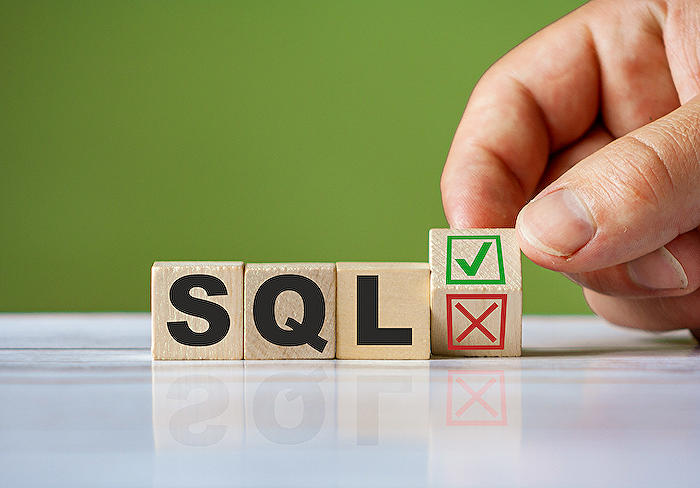Master SQL for Data Analytics in Just 4 Hours
Unlock Data Magic in 4 Hours: Master SQL for Powerful Analytics Insights
Key insights
- Unlocking Data Insights: SQL is crucial for extracting, transforming, summarizing, and uniting data, making it essential for data analytics.
- Mastering SQL Essentials: A 4-hour SQL crash course can cover fundamentals, selecting and retrieving data, filtering data, combining data from multiple tables, and performing calculations.
- Resources for Learning: Interactive tutorials, YouTube videos, and practice databases are great ways to learn SQL basics quickly.
- SQL's Importance in Analytics: SQL enables isolating specific insights, cleaning and organizing data for analysis, and uncovering trends and patterns.
- Practice Makes Perfect: Engaging with interactive platforms and applying knowledge to real datasets can significantly enhance SQL learning.
Understanding the Critical Role of SQL in Data Analytics
SQL, or Structured Query Language, is a fundamental skill for anyone looking to delve into data analytics. It serves as the main communication channel between analysts and the vast reservoirs of data stored in databases. Mastery of SQL enables professionals to efficiently extract, clean, and interpret data—turning raw numbers into actionable insights. This skill is indispensable whether someone aims to pursue a career in data analysis or enhance their ability to make informed decisions based on data.
For beginners, the prospect of learning SQL can seem daunting. However, the journey to SQL proficiency can start with just a few hours of dedicated study. With a wealth of resources available online, from interactive courses that guide you through hands-on exercises to video tutorials that cover SQL basics in engaging ways, anyone can start unlocking the power of their data. Practicing with real datasets accelerates the learning process, enabling learners to apply theoretical knowledge in practical scenarios.
Taking the first steps in learning SQL opens up a world of data analytics possibilities. The ability to query databases, analyze data trends, and produce meaningful business insights are skills in high demand across industries. As data continues to play a critical role in decision-making processes, SQL competency becomes a key lever for career advancement in the data-driven world of today.

SQL for Data Analytics - This blog post draft emphasizes SQL's pivotal role in data analytics, proposing a learning schedule of just 4 hours to get acquainted with SQL. It presents SQL as the key to unlocking valuable data insights, crucial for anyone aspiring to make data-driven decisions.
Why SQL is Vital for Analytics
SQL is fundamental in data analytics for its ability to tailor data retrieval, transform messy data into analysis-ready information, summarize data to reveal trends, and integrate data from various sources. It's an indispensable tool for data analysts.
- Extract specific data for analysis.
- Transform and clean data.
- Summarize data to discover trends.
- Combine data from multiple sources.
Mastering SQL Quickly
A focused 4-hour SQL crash course can cover essential topics such as database fundamentals, the core SQL queries, data filtering, data combination techniques, and aggregate functions to compute data metrics.
- Database fundamentals: tables, rows, columns.
- Core SQL: SELECT and FROM commands.
- Data filtering with WHERE.
- Data combining with JOINS.
- Computing with AGGREGATE Functions.
To master SQL fundamentals swiftly, engaging with interactive tutorials, watching YouTube guides, and practicing with sample databases can be highly effective. Commitment and the right resources can kickstart one’s journey into data analytics with SQL.
Understanding SQL for Data Analysis
SQL stands as a cornerstone in the realm of data analytics, offering the tools necessary to navigate vast data lakes for actionable insights. Through a focused effort, individuals can uncover the power within data, unifying disparate pieces of information to form a cohesive narrative. SQL not only streamlines the process of data extraction but also transforms and prepares data to unveil patterns, trends, and statistics essential for informed decision-making. Mastering SQL lays down the foundation for data exploration, enabling the synthesis of data-driven strategies that propel businesses forward. By delving into SQL, analytics professionals and enthusiasts alike embark on a journey of discovery, harnessing the full potential of data to drive success.
People also ask
Questions and Answers about Power Platform/Power BI
"How long does it take to learn SQL for data analytics?"
Learning SQL, by itself, is not particularly difficult. One could grasp the basics within a couple of weeks, spanning two to three weeks. Nonetheless, reaching a level of comfort with the language may require several months of consistent practice. The timeline for mastering SQL also hinges on the specific application intended by the learner.
"Can I learn SQL in 5 hours?"
For an average learner, it’s reasonable to understand the foundational concepts of SQL and begin interacting with SQL databases within two to three weeks. Achieving a level of competency that allows for effective application in practical situations, however, necessitates a more extended period of immersion and practice.
"How to learn SQL in 3 hours?"
"Creating our first Database and Table"
"How fast can you learn SQL for a job?"
SQL stands out for its simplicity and the intuitive nature of its English-like syntax, making it one of the more accessible programming languages. While dedication is paramount, consensus among professionals suggests that an average learner can attain proficiency in SQL over a span of two to three weeks.
Keywords
SQL for Data Analytics, Learn SQL Quickly, SQL Tutorial, Data Analytics Techniques, Quick SQL Guide, SQL Learning Path, Beginner SQL Course, SQL Data Analysis Skills
